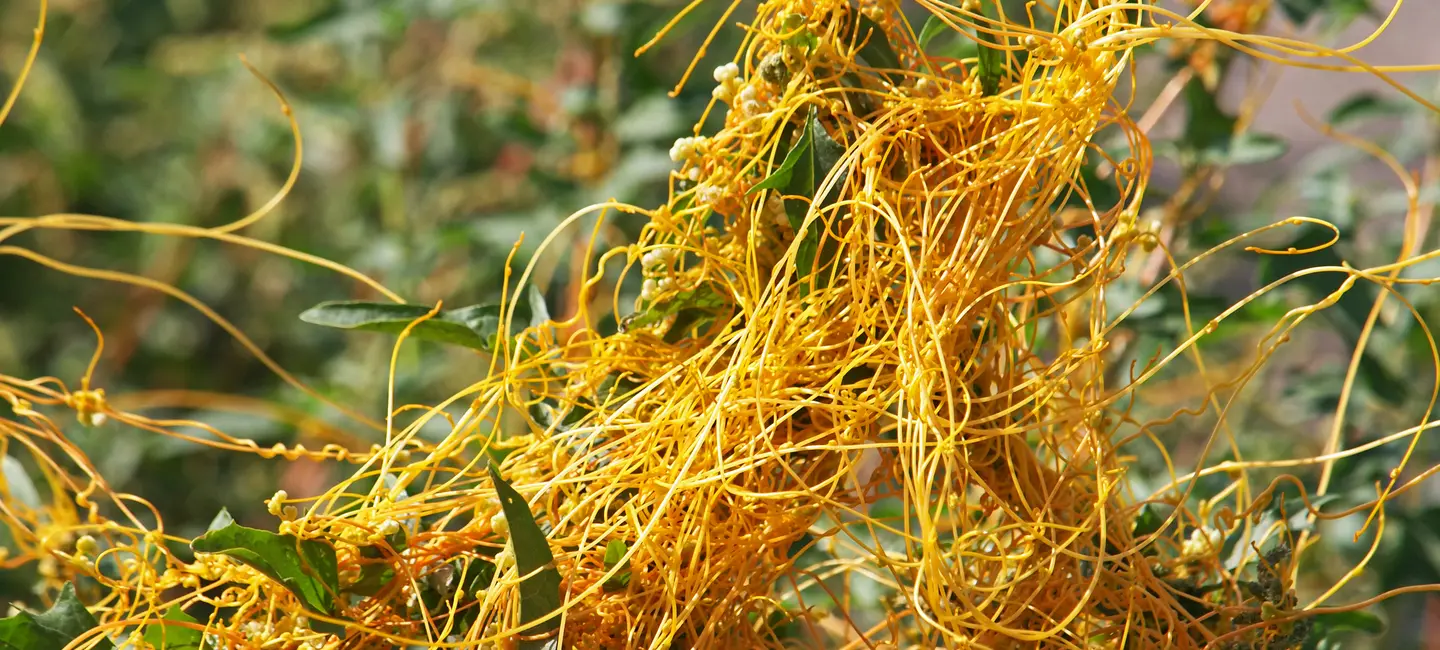
Dodder is an herb. People use the parts that grow above the ground to make medicine.
Dodder is used to treat urinary tract, spleen, psychiatric, and hepatic disorders. It is also used for cancer, depression, and pain. Dodder is used with a protein called whey for eczema (atopic dermatitis).
Is It Effective?
NatMed Pro rates effectiveness based on scientific evidence according to the following scale: Effective, Likely Effective, Possibly Effective, Possibly Ineffective, Likely Ineffective, Ineffective, and Insufficient Evidence to Rate.
- Eczema (atopic dermatitis). Early research shows that taking a combination of whey powder and dodder seed extract helps to reduce itching in people with eczema.
- Depression. Early research shows that taking dodder helps to improve depression in people who are also taking antidepressant medication.
- Bladder problems.
- Liver problems.
- Pain.
- Spleen problems.
- Other conditions.
More evidence is needed to rate the effectiveness of dodder for these uses.
Is it Safe?
Dodder contains chemicals that act like antioxidants. These chemicals might help to slow the growth of cancer cells, and improve the health of the liver, the kidneys, and the nervous system.
When taken by mouth: Dodder seed extract is POSSIBLY SAFE when taken by mouth in doses of up to 2 grams daily for up to 15 days. Dodder powder is POSSIBLY SAFE when taken by mouth in doses of up to 2 grams daily for up to 8 weeks. There isn't enough reliable information to know if higher doses of dodder are safe. It might cause side effects such as stomach upset and diarrhea.
Special Precautions & Warnings:
Pregnancy and breast-feeding: There isn't enough reliable information to know if dodder is safe to use when pregnant or breast-feeding. Stay on the safe side and avoid use.
It is not known if Dodder interacts with any medicines. Before taking Dodder, talk with your healthcare professional if you take any medications.
There are no known interactions with herbs and supplements.
There are no known interactions with foods.
The appropriate dose of dodder depends on several factors such as the user's age, health, and several other conditions. At this time there is not enough scientific information to determine an appropriate range of doses for dodder. Keep in mind that natural products are not always necessarily safe and dosages can be important. Be sure to follow relevant directions on product labels and consult your pharmacist or physician or other healthcare professional before using.
Afteemoon, Aftimoun, Aftimun, Atermoyer, Beggarweed, Chinese Dodder, Cuscuta, Cuscuta campestris, Cuscuta chinensis, Cuscuta epithymum, Cuscuta japonica, Cuscuta planiflora, Cuscutae, Cuscute, Cuscute Chinoise, Cuscute à Petites Fleurs, Cuscute du Thym, Devil's Guts, Dodder of Thyme, Field Dodder, Hellweed, Japanese Dedder, Lesser Dodder, Petite Cuscute, Scaldweed, Semen Cuscutae, Strangle Tare, Tu Si Zi, Tu Sizi.
Information on this website is for informational use only and is not intended to replace professional medical advice, diagnosis, or treatment. While evidence-based, it is not guaranteed to be error-free and is not intended to meet any particular user’s needs or requirements or to cover all possible uses, safety concerns, interactions, outcomes, or adverse effects. Always check with your doctor or other medical professional before making healthcare decisions (including taking any medication) and do not delay or disregard seeking medical advice or treatment based on any information displayed on this website.
© TRC Healthcare 2024. All rights reserved. Use and/or distribution is permitted only pursuant to a valid license or other permission from TRC Healthcare.
